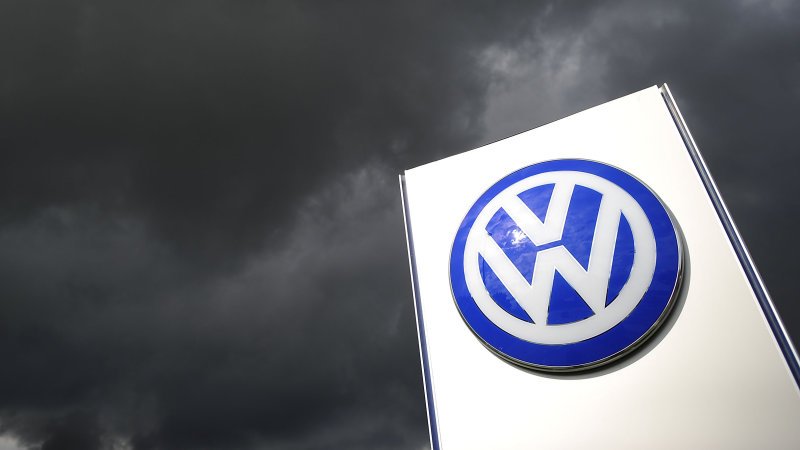VW escapes cheating fines in Germany as payout pressure mounts

It’s sufficient for Volkswagen to fix diesel vehicles in Germany so that they meet legal requirements, Transport Ministry spokesman Ingo Strater said today. Meanwhile, Bild, Germany’s most-read newspaper, took Volkswagen to task for failing to compensate the 2.4 million affected owners in its home country amid growing discontent after CEO Matthias Mueller rejected compensation in Europe.
“It’s not acceptable that the government doesn’t take any real consequences from the emissions scandal and gives a blank check for tricks and deceptions,” said Oliver Krischer, a member of Germany’s Bundestag from the opposition Green Party who is leading a parliamentary investigation committee. “It needs to be explained why companies in Germany don’t pay fines. It’s also not OK that European drivers are treated worse than American VW drivers.”
While Volkswagen is paying affected U.S. owners as much as $10,000 each as part of a $15.3 billion settlement, Germany has taken a far softer stance over the manufacturer rigging vehicles to turn on full pollution controls only during official tests. Germany, which is closely tied to Volkswagen via the state of Lower Saxony’s 20 percent stake and the political influence of the automaking giant, approved a low-cost fix that consists of a software upgrade and in some case a piece of pipe with mesh on one end.
Second class?
Instead of payments, “German customers get a letter and an appointment at the workshop to fix the cheating diesels,” Bild wrote in story published today. “Are German customers second class?” Volkswagen declined to comment beyond Mueller’s comments in the newspaper interview.
The reasons for the wide disparity in the handling of the crisis stems from equally large differences in legal and regulatory structures between the U.S. and the European Union. The lack of class-action lawsuits is a major disadvantage for European consumers, undermining their leverage in negotiations. Europe also doesn’t clearly ban switch-off devices -- the bit of software at the heart of the scandal -- and allows them to be used if they help protect the engine.
Germany has also been at pains to show emissions issues go beyond Volkswagen, strong arming automakers in April to upgrade 630,000 vehicles to fix temperature-control setups that pushed the boundaries of regulation. It also tried to put pressure on Fiat Chrysler Automobiles, but was brushed off by Italy, which has authority over the company’s European vehicles.
“There’s an attempt to protect Volkswagen to a degree, as Volkswagen could be pushed to a breaking point if the same criteria applied in Germany as in the U.S.,” said Stefan Bratzel, director of the Center of Automotive Management at the University of Applied Sciences in Bergisch Gladbach, Germany. “The Transport Ministry is also damaged by the whole affair, so they want it to go away.”
Related News
